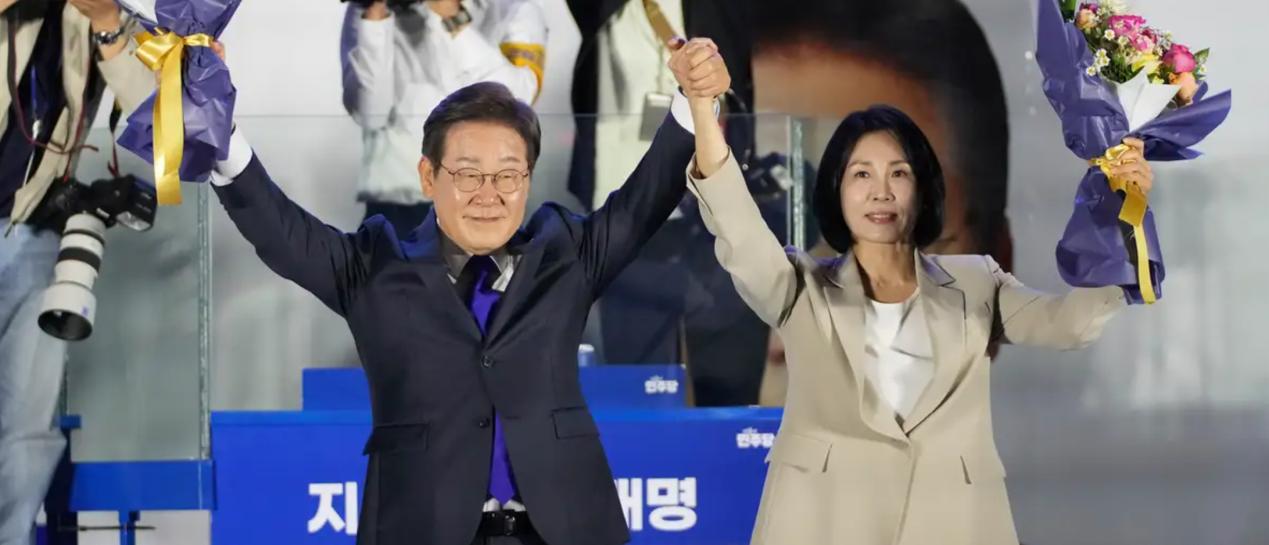
On June 4, 2025, the results of South Korea's 21st presidential election were announced, with Lee Jae-myung of the Democratic Party of Korea winning by a landslide. This election was dubbed by the media as the "least suspenseful presidential election," and his victory reflects the urgent need for change in South Korean society, the precise political image shaping of Lee Jae-myung, and the division and missteps of the ruling party camp.
I. Precise Response to Public Demands: Reform Promises from Debt to Welfare
Lee Jae-myung's core campaign platform directly addressed the pain points of South Korean society. In the economic sphere, he proposed raising the tax rate for chaebol enterprises from 25% to 30%, establishing a 30 trillion won economic stimulus fund, and focusing on supporting small and medium-sized enterprises, green energy, and artificial intelligence. This policy not only targets the structural contradiction of chaebol monopolizing the economy but also responds to the youth's demand for "fair opportunities" through technological upgrading and employment security. In terms of social welfare, he promised to pilot a "universal basic income," providing a monthly subsidy of 500,000 won to low-income families, increasing the birth subsidy from 2 million won to 5 million won, and planning to build 100 municipal hospitals to expand public healthcare coverage. These policies strongly resonate with the current reality of South Korea, where fiscal debt is high, the gap between the rich and the poor is widening, and the number of newborns has reached a historical low.
II. Shaping a Political Image: The Dual Boost of Grassroots Identity and Anti-System Struggle
Lee Jae-myung's "grassroots" label is at the core of his political capital. His background of being born in a rural area, dropping out of junior high school to work in a factory, and becoming disabled at the age of 17 due to a workplace injury, naturally connects him emotionally with the lower classes in South Korea's highly hierarchical and education-elite-dominated society. During his tenure as mayor of Seongnam, he paid off 700 billion won of municipal debt, promoted free education and childcare policies, and even went on a hunger strike to protest the central government's restrictions on local welfare expansion. These "fighter" images further solidified his position as "the voice of the people".
The victory in the anti-system struggle won him crucial votes. After the emergency martial law controversy under the Yoon Suk-yeol administration, Lee Jae-myung led the impeachment movement against Yoon Suk-yeol and shaped an image of a "lone hero" by resigning as the party leader, declaring that he "only speaks for the people". This strategy of tying his personal political fate to the defense of democracy successfully diverted voters' attention from the corruption allegations against him.
III. The Division and Missteps of the Ruling Party Camp: From Internal Strife to Voter Defection
The division within the conservative camp cleared the way for Lee Jae-myung. The People Power Party's candidate, Kim In-soo, was seen as a loyal supporter of Yoon Suk-yeol and opposed the impeachment of Yoon, leading to the loss of centrist voters. The Reform New Party's candidate, Lee Jun-seok, was too young and lacked a solid popular base, failing to pose an effective challenge. Additionally, the ruling party's radical stance on constitutional amendment has sparked controversy. The current South Korean constitution, based on the 1987 version, adopts a direct presidential election system and a single five-year term. However, Yoon Suk-yeol was elected with only 48.6% of the votes but holds 100% of the government power, a "winner-takes-all" structure that has intensified political polarization. Lee Jae-myung, under the slogan of "ending the '87 system," proposed separating the constitutional amendment process from the general election and only advancing symbolic reforms. This strategy not only prevented the conservative camp from using the constitutional amendment to divert attention but also left room for future amendments that might weaken the president's power.
IV. Diplomatic Balancing Act: Dual Considerations of Pragmatism and Strategic Autonomy
Lee Jae-myung advocates "pragmatic diplomacy", attempting to "walk the tightrope" between China and the United States. He proposes to restart negotiations on an upgraded version of the China-South Korea Free Trade Agreement, promote cooperation in areas such as semiconductors and new energy, and plans to resume the Kaesong Industrial Complex and Mount Kumgang tourism projects between North and South Korea to alleviate the trade pressure on the South Korean economy. At the same time, he emphasizes that the South Korea-US alliance is the "cornerstone of national security", and attempts to strike a balance between "drifting away from the US and getting closer to China" and "completely aligning with the US". This strategy not only conforms to the reality of South Korea's trade dependence on China but also responds to the concerns of the conservative camp regarding national security.
Lee Jae-myung's victory is a concentrated outburst of dissatisfaction with the status quo in South Korean society and a product of the precise alignment of his personal political image and policy platform. Whether he can realize the "Korean Initiative" within his four-year term depends not only on his policy execution ability and diplomatic balancing act but also on the inherent contradictions in South Korea's political ecosystem. This election victory may only be the starting point of a long journey of political change in South Korea.

According to Bloomberg, a recent in-depth interview with Michael Dehal, senior portfolio manager at Raymond James' Dehal Investment Partnership, was released, focusing on the economic development prospects and potential risks of Canada and the United States in 2026.
According to Bloomberg, a recent in-depth interview with Mi…
TikTok Shop, the global e-commerce platform under ByteDance…
As a severe flu outbreak sweeps across the United States, w…
Recently, US Treasury Secretary Mnuchin publicly stated tha…
At the dawn of 2026, the United States launched a military …
From the stiff step when it first debuted in 2022 to demons…